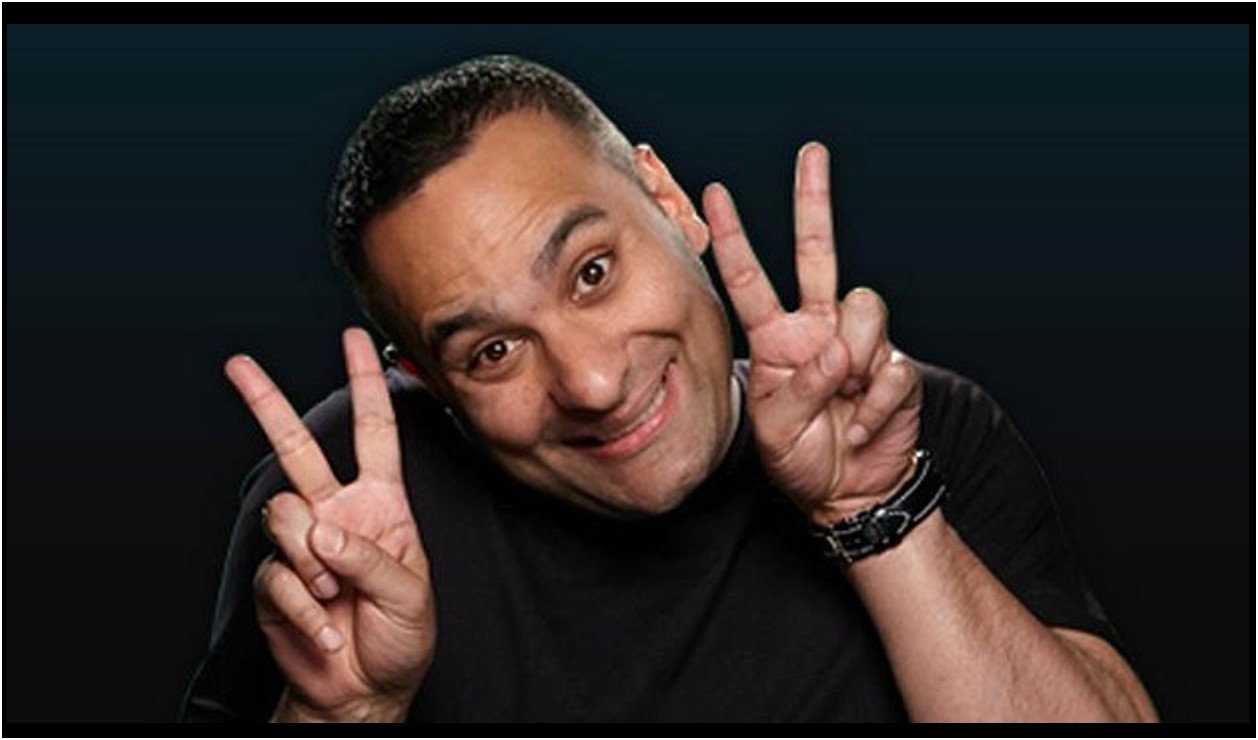Comedian Russell Peters insists he isn’t jealous that fellow funnyman Trevor Noah was picked to replace Jon Stewart as host of Comedy Central’s “The Daily Show” when Stewart steps down in August, even if he did commit the cardinal sin of comedy: stealing material.
Noah is still months away from taking over the talk and news satire program, but the spam is already hitting the fan.
During an interview last month with an Asian news agency Peters, a Canadian-born entertainer, called Noah a “thief” because he’s not only stolen bits from Peters, but also from South African comedian David Kau. And he scoffs at the notion that Noah may have simply “borrowed” some of his gags.
“You don’t borrow in this business,” Peters says. “If you’re a comedian, that’s like stealing somebody’s underwear and putting them on. That doesn’t make any sense. Why would you do that?”
It’s not the first time Noah has been accused of grand theft comedy. Two years ago, Noah responded to accusations from Kau that he pilfered some of his lines by saying no one has an exclusive on comedy.
“Nobody owns comedy, nobody owns a premise, nobody owns an idea,” Noah says. “Comedy is your personal take on a thing … like, half the jokes young black comedians are doing in America right now, Richard Pryor and Eddie Murphy were doing 20 years ago.”
Even Stewart acknowledged the controversy during a “Daily Show” last month, but he steered a diplomatic and politically correct course around the topic. He called Noah – who’s been host-in-waiting for the program since he joined the cast in 2012 – “an incredibly thoughtful and considerate and funny and smart individual” and asked the audience to give Noah some time to win them over, just as Stewart did when he took over “The Daily Show” from Craig Kilborn in 1999.
Peters isn’t dwelling on Noah’s alleged theft of his material. He’s too busy barnstorming the planet with his “Almost Famous” tour, which began last year and continues through at least November. His comedy caravan rolls into Borgata Hotel Casino & Spa’s Event Center for performances 8 p.m. Saturday and Sunday, May 23 and 24.
The title of the live show is a tweak on the 44-year-old comic’s enigmatic standing in the business. Last year, his arena tour raked in $21 million, yet many people draw a blank stare when his name is mentioned. He may well be the richest, most successful and funniest guy you’ve never heard of.
The former judge on the reality series “Last Comic Standing” says he picked the name of his tour with a sense of irony.
“It depends on who you talk to,” he told the New York Post earlier this year prior to a sold-out performance in Madison Square Garden. “If you talk to the fans, I’m fully famous. If you talk to somebody who doesn’t know who I am, I’m not famous at all until you give them a list of (my) credits or something, and they go, ‘Oh, I think I know who that is.’ That’s what ‘almost famous’ is.”
Peters was born in Toronto to a Canadian mother and a father who was born in India. His mixed ethnicity made him a target for bullies in school, but he learned how to box and was able to stand up to the haters.
He became a self-described hip hop music “junkie” in the 1990s and became a popular DJ on the Toronto dance club scene. But it was a 1992 meeting with comedian giant George Carlin that helped Peters find his focus. Carlin told Peters, who had begun dabbling comedy, to get on stage whenever and wherever he could to hone his act.
“I took that advice to heart, and I think that’s the reason I am where I am now,” he says. Carlin became a big Peters supporter, and in 2007 Peters hosted one of the last shows Carlin did before he died in 2008.
If there’s a single turning point in Peters’ career, he believes it’s a 2004 performance on a Canadian television comedy show that was eventually uploaded to YouTube. Although the entire 45-minute set was put online, web users began uploading individual segments of the show where Peters focused on specific cultural and ethnic groups, none of whom seemed offended by his material.
Peters’ material is mostly observational and touches on cultural, racial and ethnic stereotypes. He says he pokes fun at many different people, but he’s never looking to offend anyone with his humor.
Instead, he says, he’s trying to “raise them up through humor.”
He may still be something of an enigma to American audiences, but Peters is a comedy god in Canada and around the rest of the world.
By David J. Spatz


